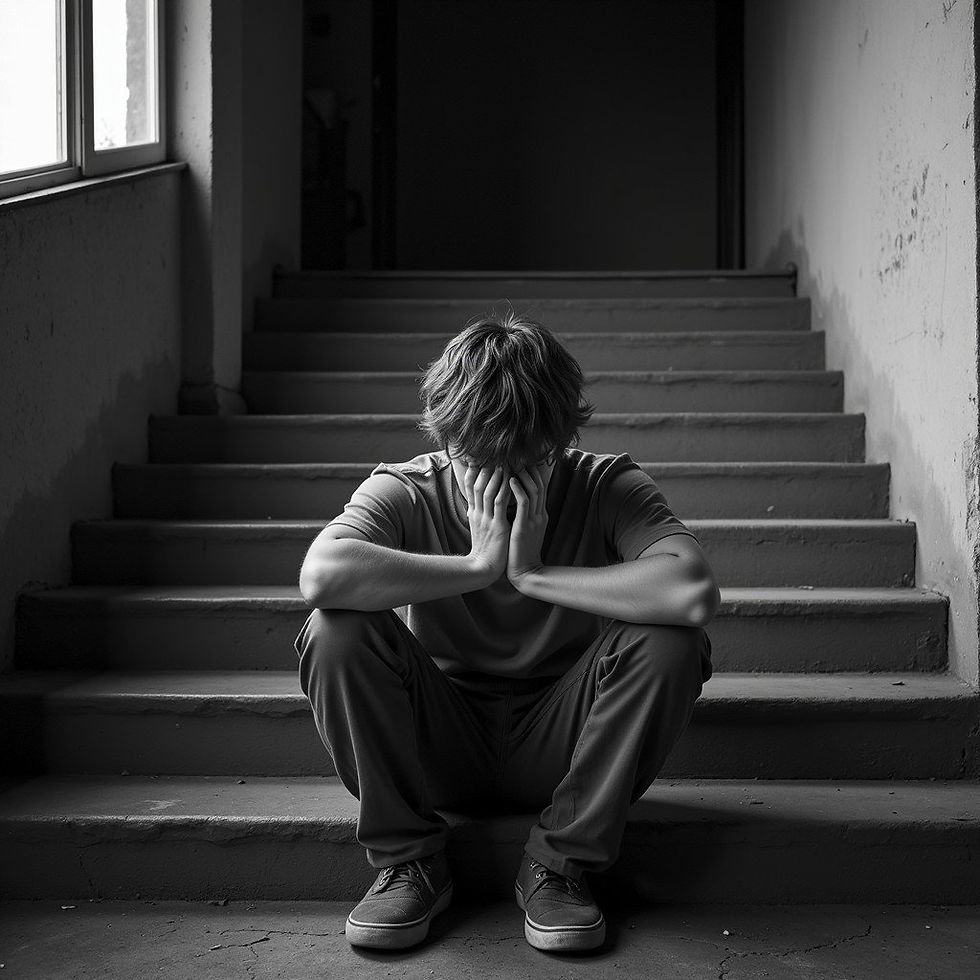Schizophrenia: The undetected Virus of the Mind
- okolobicynthia
- Aug 3
- 3 min read
Mental health is one of the most deadliest diseases in this era. So deadly because it is abstract.

In a world where viruses are feared for their invisibility and devastating effects, there's one “virus” that has gone undetected in far too many lives — not because it hides in the bloodstream, but because it resides in the shadows of the mind.
Schizophrenia — often misunderstood, misdiagnosed, and stigmatized is the silent pandemic affecting millions, creeping in undetected until it reshapes lives from the inside out.
What is Schizophrenia?
Schizophrenia is a chronic and severe mental disorder that affects how a person thinks, feels, and behaves. It is not a split personality or a result of poor parenting, as many myths suggest. It is a neurological and psychological condition, often appearing in late adolescence or early adulthood.
According to the World Health Organization, schizophrenia affects approximately 1 in every 300 people globally — yet its symptoms are often dismissed, ignored, or misinterpreted.
Why Call It an "Undetected Virus"?
While schizophrenia isn’t a literal virus, its comparison to one is not far-fetched. Like a virus:
It infiltrates silently: Symptoms often start subtly that is; withdrawal, strange thoughts, or emotional flatness and then progress unnoticed.
It disrupts normal functioning: Schizophrenia hijacks thought processes, perception, and behavior, leading to social, academic, and occupational decline.
It spreads in silence: Not through physical contact, but through generational trauma, genetic inheritance, and social neglect.
It thrives in ignorance: Lack of awareness and proper mental health education allows it to go unchecked, often until a crisis forces intervention.

Common Symptoms That Go Ignored
Schizophrenia presents differently in each person, but some early signs include:
Social withdrawal: A once outgoing individual suddenly avoids friends and family.
Disorganized thinking or speech: Conversations become hard to follow or illogical.
Hallucinations: Seeing or hearing things that aren't there — often voices.
Delusions: Beliefs that are not based in reality, such as being watched or followed.
Flat affect: Showing little or no emotion, even in emotional situations.
Lack of motivation or neglect of self-care.
Many of these are wrongly attributed to stress, drugs, “being weird,” or “acting out,” especially in teenagers. That’s how schizophrenia quietly gains ground.
The Stigma Is Deadlier Than the Disease
One of the most dangerous aspects of schizophrenia is the social stigma surrounding it. People with schizophrenia are often labeled as “crazy,” “dangerous,” or “possessed” — leading to isolation, shame, and delayed treatment.
In many societies, particularly in Africa and parts of Asia, schizophrenia is still seen through the lens of spirituality or taboo.
This stigma is more lethal than the disorder itself. Untreated schizophrenia can lead to homelessness, substance abuse, or suicide — not because the person wants to die, but because they feel like they’re already dead inside.
What Causes Schizophrenia?
While the exact cause is unknown, researchers point to a combination of:
Genetics: Family history increases risk.
Brain chemistry: Imbalances in neurotransmitters like dopamine and glutamate.
Environmental factors: Prenatal malnutrition, exposure to viruses, or extreme stress.
Substance abuse: Particularly during adolescence, drugs like marijuana or LSD can trigger psychosis in vulnerable individuals.
Early Detection Saves Lives
The earlier schizophrenia is detected and treated, the better the outcomes. With proper medication, therapy, and support, many individuals go on to live full, meaningful lives. Early intervention programs are being implemented in several countries, focusing on catching symptoms before they spiral into full psychotic episodes.
Yet, for many, the signs are either missed or dismissed. It’s time we change that.
What You Can Do
Educate yourself and others. Learn the real facts and debunk myths about schizophrenia.
Be supportive. If you notice behavioral changes in a loved one, approach them with empathy, not judgment.
Advocate for mental health. Push for better policies, funding, and awareness in your community.
Stop the stigma. Speak up against discrimination and help normalize conversations around mental illness.
A MIND WORTH SAVING
Schizophrenia is not a character flaw, a spiritual punishment, or a curse. It’s a complex medical condition, and those affected deserve compassion, understanding, and access to care. Let’s stop calling people "mad" and start calling for action.
The brain is the most powerful organ we possess but when it turns against us, we need a society that steps in, not one that turns away.
Because schizophrenia, like any virus, thrives in the dark. But with awareness, we can bring it to light.











It is great to create this awareness.